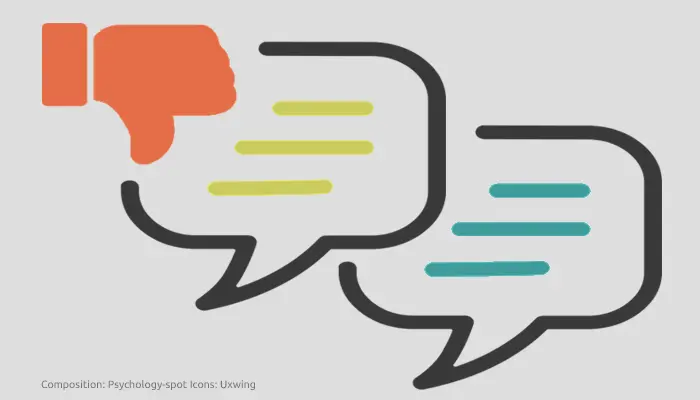
The vast majority of people like to criticize, but they don’t like to be criticized. Criticism can be even more painful when it comes from someone close to us who is supposed to support us, or from a person whom we consider a role model. And although it is not always easy to digest, the truth is that criticism is essential for growth since it often does point out our psychological blind spots.
However, giving criticism in the wrong way, at the wrong time, can not only trigger defensiveness but even make us angry or deeply damage our self-esteem. For criticism to be constructive, it is not enough to choose the words wisely, you also have to choose the right moment.
It all depends on the ability to self-control
Psychologists at Northwestern University suggest there is an optimal time to make negative ctricism. Through five experiments they explored the impact of self-regulation abilities on the processing of defensive information: the tendency to deny, distort or avoid information perceived as self-threatening.
They found that people who had low self-regulation abilities (either as a personality trait or temporary state) were significantly more likely to deny the validity and importance of negative feedback ,and were less willing to use that information to change and improve themselves. On the other hand, people with a greater capacity for self-regulation took criticism better and used it to grow.
These results suggest that self-control, that is the ability to control our impulses and emotions, plays a leading role in the way we react to criticism. Why? Simply because people with a higher level of self-control are able to endure the short-term “pain” caused by negative comments to focus on the long-term reward. That is, they can resist the tendency to get angry or deny the veracity of the criticism, enduring the discomfort it causes them because they understand that this feedback provides them with the information they need to improve. They don’t let the trees stop them from seeing the forest.
If you want to make a negative criticism, better do it in the morning
The interesting thing is that we know that self-control and self-regulation decrease as the day progresses as they are eroded by the obligations and tasks of the day. Therefore, the best time to make a negative criticism is in the morning, when our self-control is almost intact.
In fact, we cannot forget that criticism hurts because it confronts two fundamental human needs: the desire to learn and grow on the one hand, and the desire to be accepted and respected on the other. Criticism suggests change, so we often perceive it as rejection or even a personal attack. This dissonance worsens as the day progresses, making it more likely that we will react by becoming defensive, so that feedback will fall on deaf ears.
Therefore, if we want to make a negative criticism with the aim of really helping a person, we better choose the moment wisely. The first half of the day would be the default option, since tensions and frustrations have not yet accumulated, so the person will have a clearer mind to understand the importance of that constructive criticism.
And beyond the moment, it is also important to match that negative criticism with positive comments using psychological tools such as the sandwich technique. This way we won’t just leave a bad taste in the mouth and we will motivate that person to use that information to grow.
Source:
Ruttan, R. L. & Nordgren, L. F. (2016) The strength to face the facts: Self-regulation defends against defensive information processing. Organizational Behavior and Human Decision Processes; 137: 86-98.



